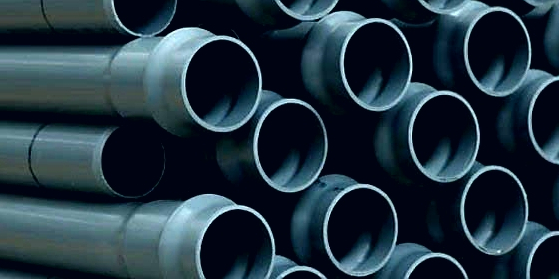Pressure Pipes

“GIL” uPVC pressure pipes with Elastomeric Sealing Ring type joints are manufactured under strict quality control with latest technology conforming to KS ISO 1452:2009 standards. “GIL” uPVC pipes with Elastomeric Sealing Ring type joints are best preferred for supply of water for rural and urban area for irrigation and water supply in hilly areas where temperature is very low and in desert areas where the temperature is maximum. “GIL” Elastomeric Sealing Ring fit pipes have been preferred over other available resources due to the following salient features.
| • Strong and durable
• Light weight • Convenient joining • Better flow characteristic • Energy saving |
• Leak proof
• Resistant to rusting, chemical action, weathering & scale formation • Odourless and hygienic • Long lasting & maintenance free • Termite resistant rubber ring |
APPLICATIONS
Domestic: Supply of potable water in house and residential buildings.
Agriculture: Supply of water for irrigation of crops.
Other: Supply of water for irrigation and consumption in hilly areas where temperature is very low and in desert areas where the temperatures are the maximum.
Product size:
Imperial from 1/2” to 3” Classes of PN9, PN12, and PN15.
Metric from 20mm to 400mm classes of PN 06, 08, 10, 12.5, 16, 20 & 25.
JOINT ASSEMBLY
1. Check the spigot end of the pipe by making sure that it is correctly chamfered to 15deg to the pipe axis and that the depth of entry point is marked.
2. Check that the rubber seal and the socket housing are free from dirt or mud deposits.
3. Clean the spigot end of the pipe, checking to see that the surface is smooth and free from indentations or other damage which may result in problems after installation and remove any burrs.
4. Lubricate the seal and apply gel lubricant evenly around the depth of entry spigot end to approximately half the distance between the pipe end and the mark. The use of dishwashing liquid or grease is not recommended.
5. Position the spigot end of the pipe so that the leading edge rests against the rubber ring in the socket. Check the horizontal and vertical alignment of the pipe and socket.
6. Push the pipe into the socket and position it so that the depth of entry mark is just visible. This procedure should be done in one fluid movement. A twisting action will aid entry. The joint is now complete.
If undue force is necessary to make the joint, the spigot should be withdrawn from the socket and the seating position of the ring should be checked. It is advisable that the depths of entry marks are checked along the length of the pipeline during installation to ensure all are visible.